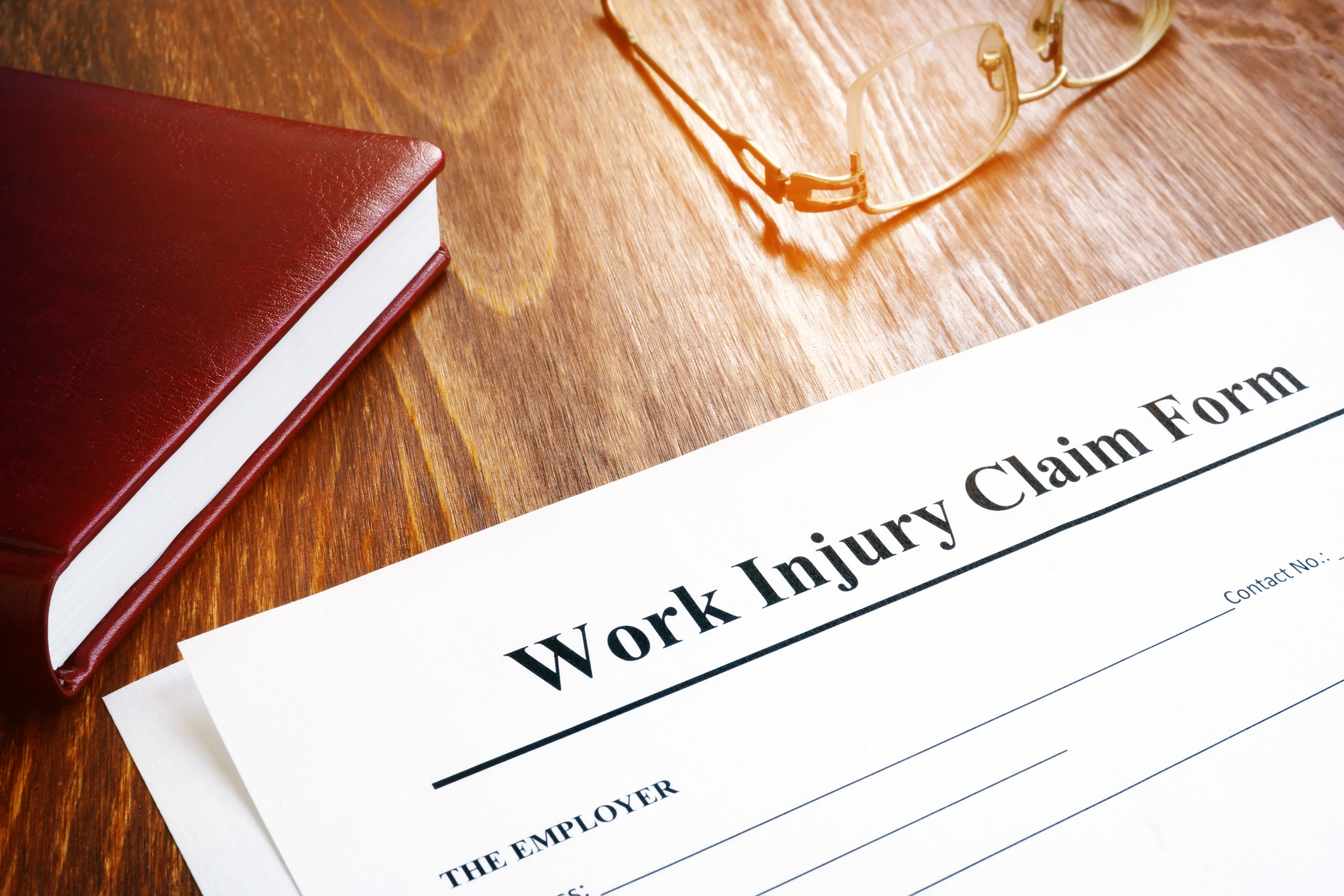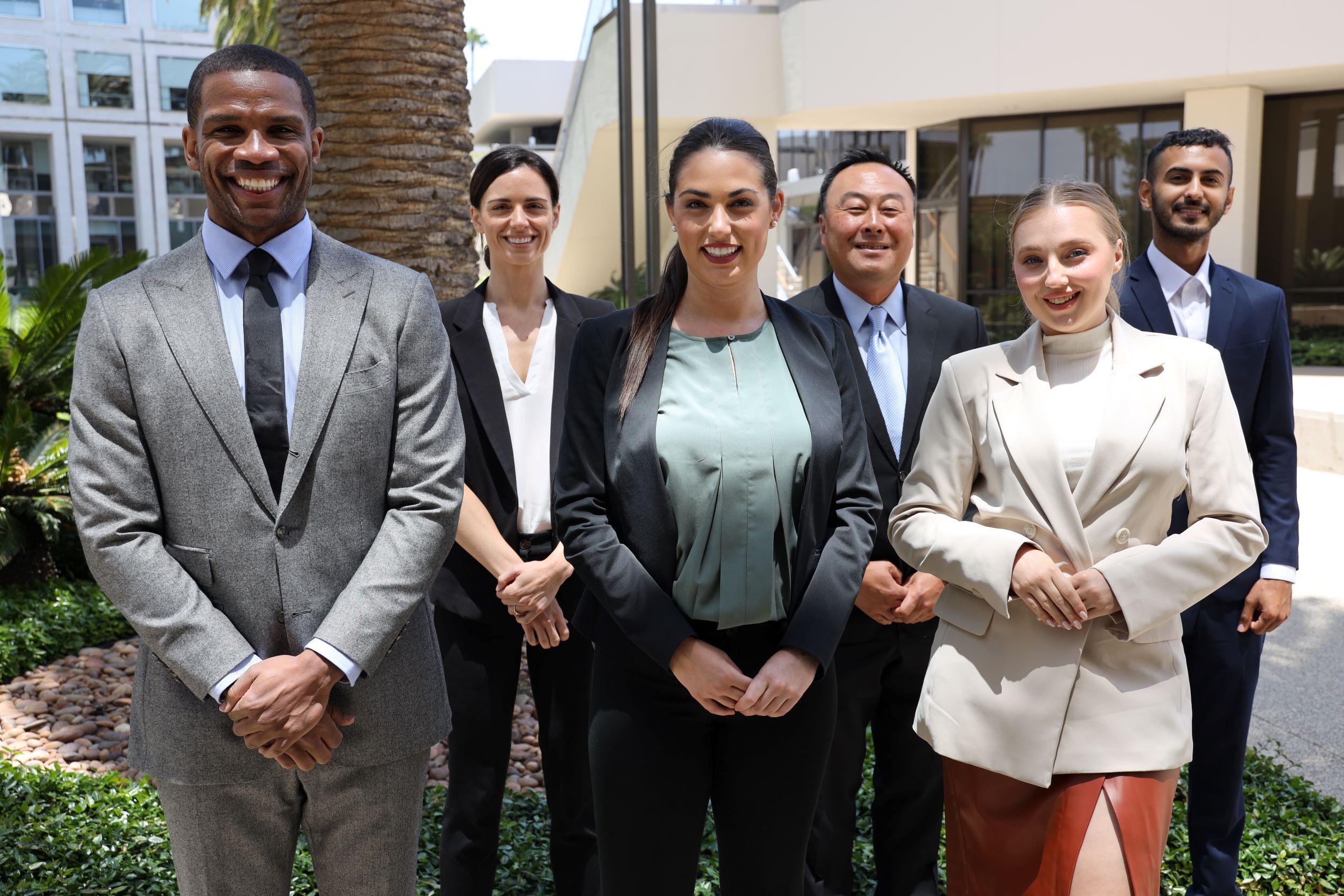Help for Work-Related Injuries
Under California law, any employee who suffers an injury at work should be entitled to workers’ compensation benefits through their employer. However, injured workers must prove that the injuries are, in fact, work-related. In addition, the employee’s benefits will be contingent on the type of injury that was sustained. The rules and regulations surrounding benefits are complex, which is why help from an experienced workers’ compensation attorney is so important.
At Golden State Accident Lawyers, our attorneys have a proven history of representing injured workers with their cases. Our San Francisco, CA law firm can help you maximize your settlement. Schedule a free consultation to speak with us today.
How Golden State Accident Lawyers Helps

Our firm provides clients with guidance and support from the first point of contact to when a finalized settlement is accepted. Navigating California’s court system is complicated, and there are numerous factors that can interfere with a case’s outcome. Any missteps can result in victims being left with the responsibility of paying for expensive medical bills without adequate reimbursement for lost income.
However, our firm’s years of legal experience have allowed us to perfect our practices and legal applications, improving our success rate for obtaining maximum benefits for our clients. Here is what we can offer:
- Free case evaluation to discuss your accident and workers’ compensation case
- Overseeing your case from start to finish, ensuring the employer and their insurance carrier are complying with state laws
- Explanation of all benefits that are legally owed, per workers’ compensation law in California
- The urgency to get all legal documentation submitted promptly so that clients can access their entitled benefits immediately
- Contingency fee payment structure, so no upfront costs or bills
- Assistance in finding the right medical care that can effectively treat varying types of injuries and improve the rate of recovery
- Access to 24/7 support from our team, should any concerns or inquiries arise
Situational factors may not qualify for benefits or may be misinterpreted by a claims administrator as illegitimate. To ensure your case is not wrongly denied, schedule a free consultation with our law firm today.
What Does a Workers' Compensation Lawyer Do?
Why are you seeking legal representation? Is it because your claim was rejected? Do you feel like you are not being fully compensated by the company? Or, are you overwhelmed with the whole process and need answers?
The role of workers’ compensation attorneys is to confirm if a case is valid and if a fair settlement has been offered. A qualified lawyer will have a client’s best interest in mind and invest time in developing a strong case that yields the best possible results.
By conducting an in-depth investigation, an attorney will collect supporting evidence like video surveillance, accident reports, and statements from expert witnesses. Each factor will prove damages for sustained workplace injuries.
Legal assistance also helps those who need it get the proper care so that their injuries do not worsen or become fatal. Additionally, these medical visits will be documented, indicating treatment plans and medical expenses in full detail.
A workers’ compensation attorney benefits injured workers by getting them appropriately compensated, as well as allows them to focus their energy on what matters most, healing.
How Long Do I Have to File a Workers' Compensation Claim?

Before filing, employees will need to immediately report their injury to the company they are employed by. A work-related accident must be reported within 30 days. Failing to report the accident could unfortunately result in the loss of benefits.
Conversely, it is the employer’s responsibility to begin the filing process after being notified of an injury or illness. Otherwise, there could be legal ramifications.
How to File a Workers’ Compensation Claim
- After notifying of injury or illness, the company must provide a case form for the employee to fill out. The form can also be obtained here.
- Once the form is completed, signed, and dated, the employee must return it. It’s also suggested to retain a copy for personal records.
- It’s then the employer’s responsibility to submit the completed paperwork to the insurance company.
- Begin treating sustained injuries. Employers must authorize treatment within one day of the claim being filed, regardless if the case has been accepted or rejected. Insurance companies will typically mail a letter to the injured worker stating the status of benefits within a 14-day span.
- If an employee has not received a letter denying the claim within 90 days, it is typically considered accepted. However, employees who have not been updated on their status should consult with our workers’ compensation lawyers in San Francisco, CA.
DO YOU NEED A WINNING WORKERS' COMP LAWYER?
Types of Workers’ Compensation Injury Cases We Handle

Accidents in the workplace can affect various areas of the body and may vary depending on the industry they work in. Common injuries include:
- Broken bones
- Spinal cord and back injuries
- Traumatic brain injury (TBI)
- Other head injuries
- Cuts and lacerations
- Fire or chemical burns
- Eye injuries
- Internal bleeding
- Amputation
- Wrongful Death
Workplace accidents are not limited to one particular event that causes an employee harm. In fact, benefits cover an injury that develops over a period of time.
Referred to as repetitive strain injury (RSI), this injury occurs due to the same repeated motions continuously exerted, affecting muscles, nerves, and tendons. Other ailments that develop over time due to toxic exposures can lead to breathing problems, heart complications, cancers, and other illnesses.
Most Common Workplace Accidents
The US Bureau of Labor Statistics had previously reported fatal work accidents in San Francisco more frequently occurred in the construction, manufacturing, and transportation industries. Additionally, the most common types of accidents reported were due to:
- Violence
- Overexertion/ bodily reaction
- Vehicular accidents
- Falls, slips, and trips
- Electrical accidents
- Fire and explosions
- Exposure to harmful substances
Recent data shows that exposure to harmful substances and hazardous environments are the top cause of occupational injuries in the US and are most prevalent in the healthcare and social assistance industries. Its rate of injury is 43.5 per 10,000 full-time workers, which is nearly twice as much as the second leading workplace injury, which is overexertion at 26.2 per 10,000 full-time workers.
What Does Workers' Compensation Cover?
Disability benefits, supplemental job displacement, and death benefits may be available to those who qualify, depending on the circumstances. Ultimately, coverage can be broken down into the following:
- Medical aid – all medical expenses are to be paid by the company
- Temporary disability benefits – payments to compensate a victim for the temporary time that was missed from work during recovery
- Permanent disability benefits – payments to compensate for lost earning capacity if the injured person cannot recover completely and return to work
- Supplemental job displacement benefits (SJDB) – a voucher that offers a path to learning new skills or enhances already learned skills in order to pursue a new career
- Death benefits – payments made to surviving family members of someone who was killed while working
Additional benefits can cover injured workers while their workers’ compensation cases are being reviewed by the claims administrator. During that time, injured workers are granted up to $10,000 in medical treatment. Also, if payments are delayed while out of work, disability payments may be increased.
What Is a Third-Party Claim in a Workers’ Comp Case?

A third-party claim can be filed against an additional party who contributed to an employee’s injury in the civil court system. An example of this is a delivery driver dropping off a package at an office, then slips and falls because the lobby flooring was wet.
A lawsuit cannot be filed against a company that offers employees benefits. However, when it comes to a third-party, personal injury claims can certainly be filed against that at-fault party just like in a personal injury case. This allows the injured party to recover more compensation in addition to the work comp benefits.
Frequently Asked Questions
Injuries that are sustained while working entitle injured workers to benefits that should cover medical care, lost wages, or compensation for permanent damage in more severe cases. However, that does not mean that the process will be easy, nor guarantee workers maximum payments. Here are some frequently asked questions from clients. If you still have additional concerns, please contact our firm and schedule a free case evaluation.
How Long Can I Stay on Workers’ Comp?
The intention is to help employees overcome their injuries and/or compensate them if they can no longer work. Depending on if a serious injury was sustained, coverage will vary by case.
Regarding medical care, employees can stay on workers’ comp until the treating physician concludes that recovery has been reached, as outlined in the medical treatment utilization schedule (MTUS). The MTUS details the types of care plans offered, how often to administer treatment, and how long to treat a patient. During this time, the employee can return to work at a limited working capacity and still receive benefits.
If a doctor decides that maximal medical improvement (MMI) has been reached, and recovery has plateaued, the employee may qualify for permanent disability payments for a specified amount of time.
For temporary disability, benefits can last up to 104 weeks during a 2-year span or 5-year span, depending on the date of the accident. Payments generally end when an employee returns to work.
Is There Anything Workers’ Compensation Will Not Cover?
Coverage can cover a wide range of scenarios, but there are specific incidences that may not qualify for coverage. The most common accidents that are not covered are commuting to and from work, offsite break periods/lunch breaks, physical fighting with another employee, being under the influence of drugs or alcohol, and attending an offsite work function.
Additionally, employees must be treated by an approved doctor within the insurance company’s medical provider network (MPN). If an employee has a desired doctor or specialist who is not within the network, that physician may still be able to treat the employee. However, that particular physician must be approved first, or the employee could owe medical fees.
What Do I Do If My Former Company Is Uninsured?

It is a criminal offense for a business not to carry insurance and is punishable by fines or imprisonment.
Regardless of being insured, the employer is still responsible for paying for the injured employee’s medical bills and other damages. Typically, legal action cannot be taken against employers in the event an employee is hurt at work. However, this policy applies to legally insured companies.
In addition, the employee can file to receive benefits with California’s Uninsured Employers’ Benefit Trust Fund (UEBTF) which can compensate employees who were injured while working for an illegally uninsured company.
If a company is not carrying insurance, the San Francisco District Office’s Information and Assistance Unit should be notified. However, our workers’ compensation attorneys can help hold the wrongful party accountable and get clients fully compensated.
Can You Be Fired While on Workers’ Comp?
Injured workers cannot be fired for filing workers’ compensation claims. However, an employer can say there is legally acceptable reasoning for the termination for reasons such as poor job performance or breaking company policies. Retaliation against the employee, however, would be an unlawful reason.
In California, most companies hire employees on an “at-will” basis. That means both parties have the right to part ways at any time for no reason.
Therefore, if injuries prevent someone from performing their job, the company would have a legally acceptable reason for letting that person go. Regardless, employees are still entitled to receiving benefits until fully recovered. If an employee has reached MPI, then that person may qualify for supplemental job displacement benefits.
Contact Us to Schedule Your Free Consultation

For help regarding your case, please, contact Golden State Accident Lawyers. Our skilled attorneys will help you determine the extent of coverage you are entitled to. Compensation varies for every case, and depending on the severity of injury, you may be owed more than what you are receiving. Allow us to assist you to determine the value of your case.
If you were injured at work and reside in San Francisco or the neighboring Bay Area cities, our law firm can help. Schedule a free consultation with our firm today. We are available day or night, including on weekends and holidays.
Law Offices
Golden State Accident Lawyers
550 Bryant St. Suite 2K
San Francisco, CA 94107
(415) 636-6474